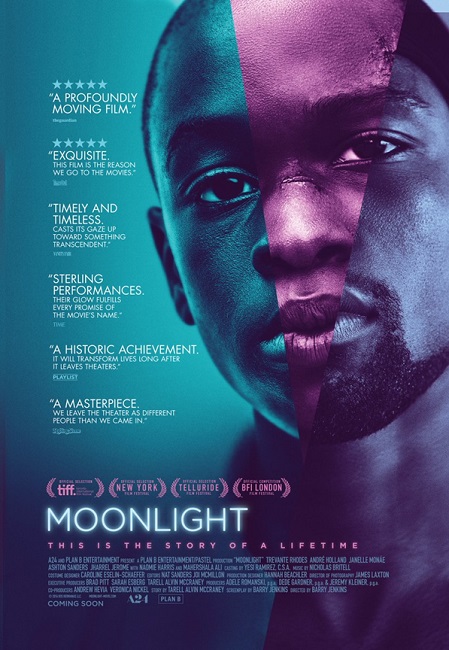
Moonlight – 2016
This movie was quite unexpected. I really had no idea what the movie was about. I had heard from friends who had seen it and everyone kept saying how good it was, but I didn’t really know the subject matter. The movie actually had a fairly simple plot. It was split into three acts, each of which told the story of a stage of a man’s life. The first covers events when he is nine years old or so, the second when he is a teenager, and the third when he is an adult.
The film is based on a play that was written in 2003 that was called In Moonlight Black Boys Look Blue, by Tarell Alvin McCraney. The play was never produced. But ten years later, director Barry Jenkins found the script when he was looking to make a new movie. He brought it to the big screen and the rest is history.
Interesting note: The original script for the stage-play told all three time lines at the same time, leaving it vague that the main characters in each of the three segments were actually the same character, a fact which was made clear about half way through the play.
In the first segment, called “Little”, we follow a young boy in the hood in Liberty City, Miami, that is first seen running from a gang of bullies. We don’t know who he is or why he is running. He is found by Juan, played by Mahershala Ali, the local drug dealer. Juan takes pity on the boy and convinces him to go with him. He feeds the boy and takes him to his own house in an affluent neighborhood. While there, Juan’s girlfriend Teresa, played by Janelle Monae, shows him equal tenderness and gets the child to open up and tell them where he lives.
The boy is named Chiron, pronounced Shy-rone, played by Alex Hibbert. He is a quiet boy who rarely speaks. He tells his hosts that he does not want to go home. But he responds to Juan and Teresa’s kindness. Little spends the night at Juan’s house, and Juan takes him home to return him to his mother, Paula, played by Naomi Harris. Paula becomes protective and is understandably angry that Little had not come home the previous night.
But as it turns out, Juan, being the local drug dealer, has been selling crack cocaine to Paula. He bonds with Little, even going so far as to teach him how to swim. Little bonds with him, seeing him as a father figure, or at the very least, a positive male role model. The relationship that grows between them is actually quite touching.
But things fall apart when Juan and Paula argue. Juan berates Paula for being a bad mother, and Paula lashes back, letting him know he has no business trying to raise her son. After the confrontation, Paula goes home and takes out her anger on Little, screaming at him and calling him a faggot. Apparently, Little is a homosexual.
I was surprised at this. Hollywood has a habit of shying away from open homosexuality. Gay characters are usually seen in films as either comic relief, prissy nice guys, flamboyant misfits, or tragic victims. Little was none of those things. And based on what is shown of him during this first stage of the movie, his sexuality was barely evident. There was one scene in which he and the other boys are playing soccer and he feels like an outsider, standing apart from the group. As he wanders off, his friend Kevin, played by Jaden Piner, follows him, and an awkwardly close moment comes and quickly goes. It was subtle, and handled surprisingly well by the child actors.
In the end, Little goes to Juan and confronts him about two things. First, he asks what a faggot is. Juan and Teresa answer him in a kind and loving way, telling him that it is alright to be gay and that he should never let anyone put him down for it. The second thing he asks Juan about is whether or not he sells drugs to his mother, Paula. In shame, Juan admits the truth. Little leaves as Juan breaks into tears.
Mahershala Ali did a fantastic job. In fact, it was the only segment of the movie he was in, but it was enough for him to win the Oscar for Best Supporting Actor. He really turned in a great performance. He was strong and loving towards Little, belying his tough exterior. As the audience, we know that he is ultimately a bad man. He is a drug dealer, a man who makes his money by ultimately ruining the lives of his clients. And yet, we don’t hate him. He shows such kindness and love to young Little, that we almost forget what he does for a living. Ali really seemed to understand the character and I think he really deserved his award.
This first segment also did a great job establishing the characters. In fact, I think it was why it was the longest of the three segments. It was great set-up for the other two segments. Chapter two is entitled Chiron. The boy has grown to a teenager. Apparently, Juan is dead, though we are never really told how or why. Chiron still visits Teresa because there are times when his prostitute, crack-whore mother turns him out of the house. Paula’s drug use is escalating and Chiron has dropped the name Little. He is still an angry young man who doesn’t talk much.
This is the segment in which Naomie Harris really shined. She really played the spiraling druggie well. The range of emotions she displayed, especially the scene in which she pressures Chiron into giving her money so she can get her fix. Harris is actually a very attractive woman, but her makeup artists did a number on her, making her look as if she was slightly crazed and aching for more crack. Well done Naomie. She was nominated for Best Supporting Actress, though she did not win.
Interesting note: Harris spent time with actual crack addicts and watched interviews, which allowed her to give a more honest and accurate performance.
By this time, Chiron, played by Ashton Sanders, is in high school, and his sexuality seems to be common knowledge. He is mercilessly teased and bullied. It seems his only friend is Kevin, now played by Jharrel Jerome. He is the kind of boy who likes to brag about the girls with whom he has had sex. But he is more than a friend to Chiron. In one of the movie’s most awkward and yet significant scenes, the two boys are on the beach, staring out at the water and smoking a joint. The conversation turns strangely intimate and they kiss. Then, Kevin jerks Chiron off.
It is a significant scene that seemed to come out of nowhere, but in retrospect, the signs had been there. It is Chiron’s first experience in really exploring his sexuality. And the scene was very tastefully done. Nothing was explicitly shown. In fact, the camera cut to a shot of the two boys sitting on the beach from behind. All we can see is their backs, but we can clearly hear what is happening.
The next day, the worst happens. The school bully, Terrel, played by Patrick Declie, pressures Kevin into beating up on Chiron. Chiron allows it and when he is knocked down, Terrel and his friends beat him bloody. The next day, he walks into class, puts down his book bag, picks up a chair, and smashes it over Terrel’s head. Terrel does not get up. And I have to admit that while it was the wrong thing to do, it was very satisfying to watch. Chiron is arrested and taken to juvie.
The third and final segment, entitled Black, is short and sweet. Chiron grows into an adult. Played by Trevante Rhodes, he has taken the name Black, the nickname that Kevin had given him in school. Black is now a drug dealer in Atlanta. He has taken on a look that very much resembles Juan. He seems to have plenty of money. One day, from out of the blue, he gets a call from Kevin, now played by Andre Holland. When asked why he called, Kevin can only say that he heard a song that reminded him of Chiron.
This segment was, by far the strangest of part of the movie. It was good because the brief phone conversation inspires Black to visit his mother, who now resides in a drug rehabilitation facility. The two reconcile and Black forgives Paula for being a mother with no love for her child. Then Black drives back to Miami to see Kevin, who now works as a cook in a diner. Their meeting is once again awkward. They talk about their lives and Kevin expresses surprise at how Black’s life has turned out. He also reveals that he has a son.
The two go back to Kevin’s place and Black confesses that he has never been intimate with another person since their experience on the beach. The film ends with Kevin tenderly holding Black in his arms as the camera pans back. The last thing we see before the credits start rolling is an image of the nine year-old Little, standing on the beach under the moonlight. To me, it felt like the movie was saying that the big, tough drug dealer, Black, felt like an innocent child in the arms of the only man he had ever loved. I found myself wishing that If he had taken on the role of Juan, Kevin could be his Teresa, though for some reason, it seemed very unlikely. The ending of the narrative was just so vague. For example, it was unclear whether Kevin was married to his child’s mother. It was also unclear whether the two men might try their luck at a relationship. Nothing said those questions had to be answered, but they felt like loose ends or unfinished business.
As you can see, the subject matter was just a little unusual for an Academy Award Best Picture Winner. But I’m glad to see it covered in a tactful and subtle way. The film seems to have a bit of social significance as well. Homosexuality is a touchy subject, but so is racism. Moonlight was important because it was a film with an all-black cast and an all-black crew. You might remember the controversy over the previous year’s nominations. There were complaints that black films and black actors were being purposefully overlooked by the all-white Academy. I’m not going to comment on whether this was true or not, but many people believed that it was.
But I believe this was a film that deserved to win the coveted Best Picture Award. It was a well-crafted script that dealt with serious, dramatic themes. It was very well-cast and wonderfully acted, even by the children. The actors for both Chiron and Kevin looked perfectly plausible as the same characters in different phases of their lives. The dialogue was well-written and expertly delivered, especially during the deep and intense scenes of the third act.
Interesting note: This was the year of the big Oscar Ceremony flub. Warren Beatty and Faye Dunaway were the presenters for the Best Picture category, but they were given the wrong envelope. Beatty opened it and was confused. Not understanding what he was reading, he gave it to Dunaway, who did nothing more than glance at the card. She blurted out that La La Land had won for Best Picture. The cast and crew of La La Land came up to the stage and gave their acceptance speeches. Then Beatty interrupted them and stopped everything to announce that there had been a mistake. Moonlight was actually the winner! The La La Land people were ushered off the stage to make way for the Moonlight cast and crew, who came up to give their acceptance speeches! Everyone was giving speeches except for me. I was speechless!
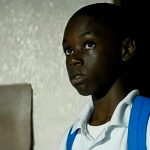

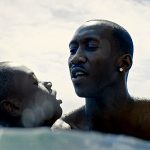

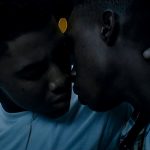

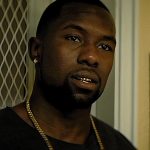


Very well said. I enjoyed the movie thoroughly myself. Keep up the fantastic work!
A close-up of the red envelope suggested Dunaway and Warren Beatty had an envelope containing a previous award for best actress – Emma Stone of La La Land – prompting Beatty to hesitate before handing over to Dunaway, who named La La Land as best picture winner.
Price Waterhouse Coopers, the accounting firm that tallies Oscar votes, took responsibility and issued an apology. It said: “We sincerely apologize to Moonlight, La La Land, Warren Beatty, Faye Dunaway, and the Oscar viewers for the error that was made during the award announcement for best picture. The presenters had mistakenly been given the wrong category envelope and when discovered, was immediately corrected. We are currently investigating how this could have happened, and deeply regret that this occurred. We appreciate the grace with which the nominees, the Academy, and Jimmy Kimmel handled the situation.”